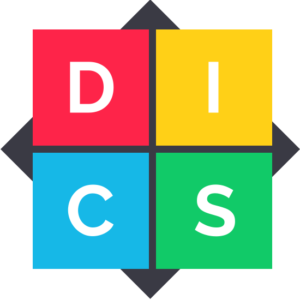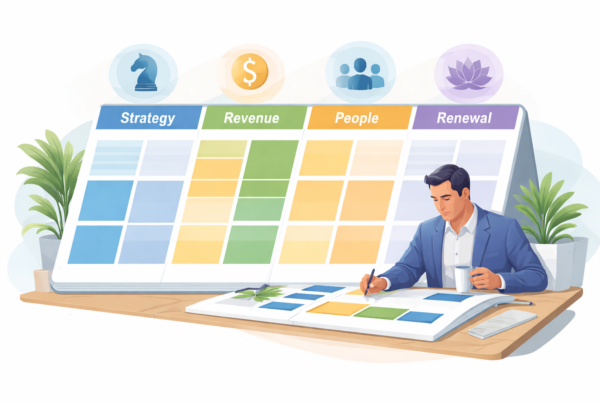Understanding DISC Personality Types and How to Use the DISC Assessment
Imagine a team in an office – they’re intelligent, talented, and dedicated, but their meetings always seem to end in heated discussions, indecision, or misunderstandings. Their problem? They don’t understand each other’s personalities and communication styles, which is where the DiSC assessment can help.
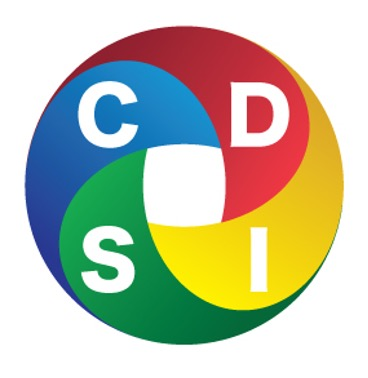
Short Summary
- DISC is a personality model which helps individuals understand their behaviour and communication style, enabling them to improve interpersonal relationships.
- DISC assessments offer insights into behaviours, communication styles and conflict resolution for teams & leaders.
- Real-life applications of DISC include career guidance, relationship building & personal growth through understanding strengths/weaknesses to adapt better.
The Fundamentals of DISC

The DISC personality model, which stands for Dominance, Influence, Steadiness, and Consciousness, provides a roadmap to understanding these differences in disc style. By taking a free DISC personality test, individuals can determine their personality type and gain insight into their behaviour and communication style.
This self-knowledge can then improve communication and collaboration in personal relationships and the workplace.
Dominance (D)
Meet John, a team leader known for his assertive and results-oriented approach. He excels at setting goals and making decisive decisions but often struggles with the details and can unintentionally overpower his colleagues.
This is a classic example of a high “D” personality type in the DISC model. John can learn to balance his assertiveness with a more inclusive and detail-oriented approach by understanding his strengths and weaknesses.
Influence (I)
On the same team, we have Lisa, a social butterfly who is always enthusiastic and persuasive. She is the glue that holds the team together, but her disorganization can sometimes derail the team’s progress. Lisa is a typical “I” personality type in the DISC model.
By recognizing her strengths and weaknesses, Lisa can work on being more organized and focused while still using her influence to motivate and inspire her team.
Steadiness (S)
Then there’s Michael, the team’s rock. He is reliable, calm, and cooperative, always there to support his team members. However, he struggles with change and can be overly passive.
Michael is a classic example of an S-type personality in the DISC model. By understanding his personality type, Michael can learn to be more adaptable and assertive when necessary while providing the stability and support his team relies on.
Conscientiousness (C)
Finally, we have Sarah, the team’s analyst. She is meticulous, analytical, and independent, always double-checking the team’s work and ensuring everything is perfect. However, her need for perfection can sometimes slow the team’s progress and create friction.
Sarah is a typical “C” personality type in the DISC model. By understanding her personality type, Sarah can learn to balance her attention to detail with the team’s need for efficiency and flexibility.
Applying DISC Assessment in the Workplace

Imagine if John, Lisa, Michael, and Sarah took a DISC assessment. They would gain insights into their behaviours and communication styles, as well as those of their colleagues. This improved understanding could enhance teamwork, communication, and conflict resolution, leading to a more effective and harmonious work environment.
DISC assessments provide a powerful tool for understanding individual and team dynamics. By understanding each other.
Team Building
With the insights from the DISC assessment, the team can be restructured to take advantage of each member’s strengths. John can focus on setting goals and making strategic decisions, while Lisa can work on improving team morale and motivation.
Michael can provide steady support to the team, and Sarah can ensure the quality of the team’s work. This way, each team member can contribute to the team’s success in their unique way.
Leadership Development
The DISC assessment can also provide valuable insights for leaders. By understanding their leadership style and how it affects their team, leaders can adapt their approach to better meet their team members’ needs. For example, as the team leader, John can learn to balance his assertiveness with a more inclusive approach, enhancing his effectiveness as a leader.
This can help John better understand his team’s strengths and weaknesses and adjust his team.
Conflict Resolution
Conflicts often arise from misunderstandings or differences in communication styles. The DISC assessment can help identify these differences and provide conflict resolution strategies. For example, if Sarah is frustrated with Lisa’s disorganization, understanding Lisa’s “I” personality type can help Sarah see that Lisa’s strengths lie in her social skills and enthusiasm, not in her organizational skills. This understanding can help Sarah and Lisa find a compromise that allows them to work together effectively without focusing on right or wrong answers.
The DISC assessment can be a powerful tool for understanding and resolving conflicts. It can help.
Personal Growth and Self-Awareness with DISC

The benefits of the DISC assessment extend beyond the workplace. By understanding their DISC personality type, individuals can gain valuable insights into their strengths and weaknesses.
This increased self-awareness can lead to personal growth, improved communication, and better relationships in all aspects of life, all of which can be achieved with a positive attitude.
Identifying Strengths and Weaknesses
Let’s go back to John. By taking the DISC assessment, he realizes that his assertiveness, a strength in many situations, can sometimes come across as domineering. This self-awareness allows him to work on this weakness, making him a more effective leader and team member.
John now has the tools to recognize when his assertiveness is becoming too much and can adjust to it.
Enhancing Communication Skills
The DISC assessment can also help individuals enhance their communication skills. For example, Lisa learns that not everyone appreciates her outgoing and enthusiastic communication style. By adapting her approach to the personality types of her team members, she can communicate more effectively with them.
This can help her better understand how to tailor her communication to the needs of her team.
Adapting to Different Personality Types
Understanding the DISC personality types can also help individuals adapt to different personality types, improving their relationships and interactions with others. For example, Michael learns that his passive approach can sometimes be frustrating for his more assertive colleagues. By understanding their personality types, he can learn to be more assertive when necessary while still maintaining his calm and cooperative nature.
This understanding can help Michael better navigate his relationships with his colleagues, making him more effective.
How to Take a DISC Assessment

Are you interested in discovering your DISC personality type? Taking a DISC assessment is a simple and insightful process. It involves finding a reliable assessment, answering questions about your behaviour, and interpreting the results.
The same assessment is designed to measure four key personality traits: dominance, influence, and steadiness.
Finding a Reliable Assessment

When looking for a DISC assessment, finding and selecting one that is validated and reliable is important. Consider reviewing user reviews, researching the assessment provider, and checking for validation and accreditation.
Some reputable DISC assessments, including the disc profile test, are Open Psychometrics, Truity, 123 Test, Tony Robbins, Crystal, and DISC Personality. To better understand your disc personality, consider taking a free disc assessment from one of these providers.
Taking the Test
Once you’ve found a reliable assessment, the next step is to take the test. This typically involves answering a series of questions about your behaviour and preferences. The test usually takes about 15 to 20 minutes to complete and can be done in one sitting.
Interpreting Results
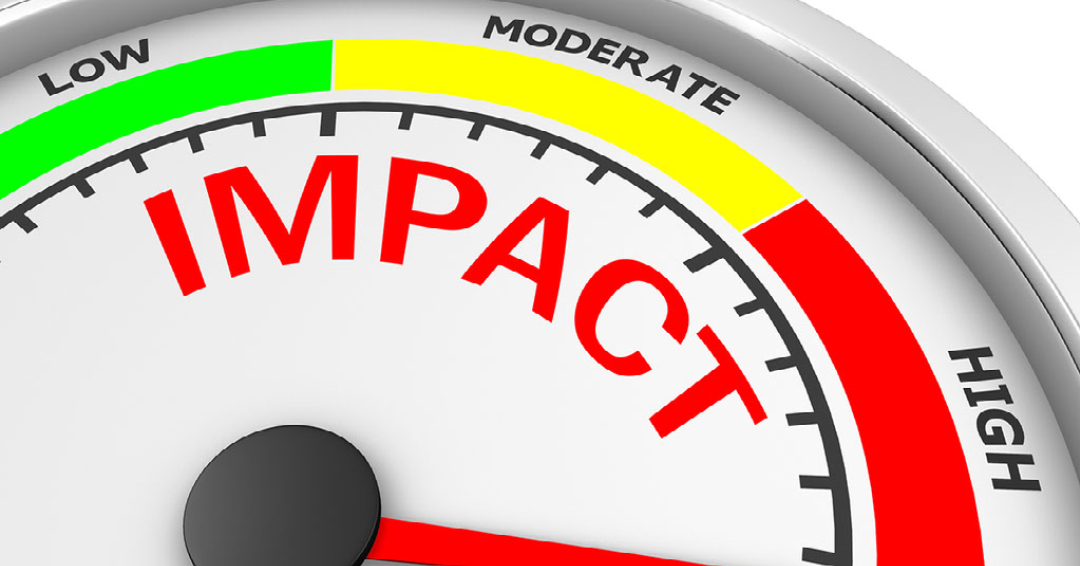
After taking the test, you’ll receive a report detailing your DISC personality type and how it influences your behaviour. This report can provide valuable insights into your strengths, weaknesses, communication style, and interactions with others.
Applying these insights can improve personal and professional relationships, enhance communication skills, and foster personal growth.
Our own assessment tool is facilitated by Assessments 24×7, and our coaches are certified in interpreting, coaching and delivering training on the DISC personality test, as well as other behavioural tests. To find out more, contact Joel Zimelstern or email joel@coachingsuccess.ca
Real-Life Applications of DISC
The insights gained from the DISC assessment can be applied in many areas of life, from career guidance and relationship building to personal growth. Whether you’re a team leader like John, a social butterfly like Lisa, a steady supporter like Michael, or a detail-oriented analyst like Sarah, understanding your DISC personality type can help you navigate the complexities of interpersonal relationships and personal development.
By understanding your DISC type, you can gain insight into your strengths and weaknesses and use these to your advantage.
Career Guidance

The DISC assessment and the disc profile can be a valuable tools for career guidance. By understanding your personality type, you can identify career paths that align with your strengths and preferences. For example, a detail-oriented “C” personality type like Sarah might thrive in a career that requires meticulous analysis and problem-solving, such as data analysis or accounting. Utilizing disc profiles can further enhance this process.
These career paths can help individuals find a personally fulfilling and professionally rewarding job. With that in mind.
Relationship Building
The DISC assessment, also known as the personal profile system, can be used to improve your personal and professional relationships. By understanding your personality type and the types of others, you can adapt your communication style to better connect with others. This can lead to stronger relationships, improved communication, and a more harmonious home or workplace environment.
By taking the time to understand the DISC assessment and how it can be used to improve relationships.
Personal Growth
The insights gained from the DISC assessment can also contribute to personal growth. By understanding your strengths and weaknesses, you can develop a plan for personal development. This might involve working on your weaknesses, developing your strengths, or adapting to different personality types.
By applying these insights, you can become a more effective communicator, a stronger team member, and a more self-aware individual.

Summary
In conclusion, the DISC personality assessment is a powerful tool for understanding individual behaviour and communication styles. Whether you’re a team leader, a social butterfly, a steady supporter, or a detail-oriented analyst, understanding your DISC personality type can help you navigate the complexities of interpersonal relationships and personal development. So why not take the plunge and discover your DISC personality type today? It could be the first step on your journey to improved communication, stronger relationships, and personal growth.
Our own assessment tool is facilitated by Assessments 24×7, and our coaches are certified in interpreting, coaching and delivering training on the DISC personality test, as well as other behavioural tests. To find out more, contact Joel Zimelstern or email joel@coachingsuccess.ca
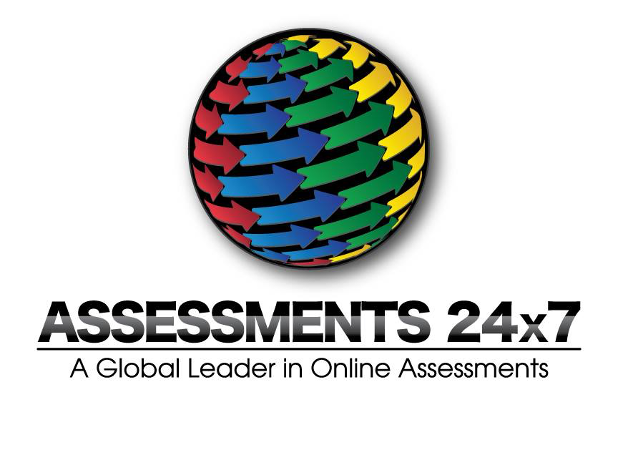
Frequently Asked Questions
What does my DISC mean?
My DISC profile reveals that I have a strong blend of four primary traits: dominance (D), influence (i), steadiness (S) and conscientiousness (C). Knowing this can help guide me toward personal and professional success. By understanding my DISC profile, I can find a career that I enjoy and will bring me success.
What is the DISC method of personality?
The DISC method of personality is a model that identifies four primary types of personalities – Dominance, Influence, Steadiness, and Consciousness – with each type exhibiting distinct characteristics and behaviours.
Dominance is characterized by a strong need for control, a take-charge attitude, and a focus on results. Influence is characterized by a need for social interaction, a focus on relationships, and a desire to be liked. Steadiness is characterized by a need for stability.
Is DISC a good personality test?
DISC assessments generally receive strong reliability scores, with Extended DISC assessments being particularly reliable, valid, and accurate. Thus, DISC is a good personality test.
How can the DISC assessment be used in the workplace?
The DISC assessment can be utilized in the workplace to enhance team building, develop leadership skills, and resolve conflicts.
How can the DISC assessment contribute to personal growth?
The DISC assessment can help individuals identify their strengths and weaknesses, enhance communication skills, and adapt to different personalities, enabling personal growth.
